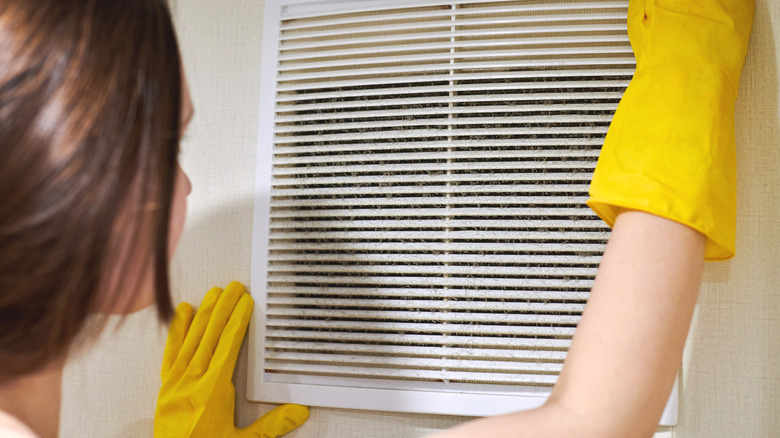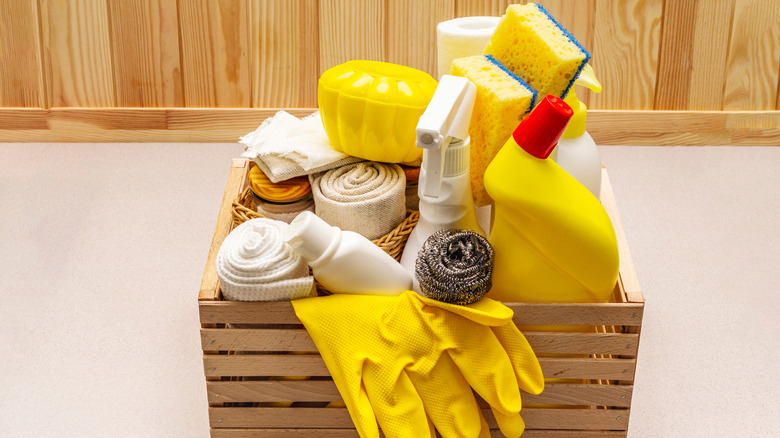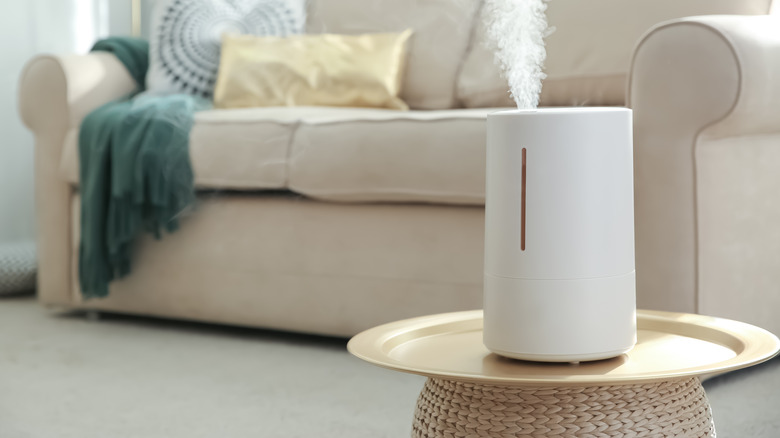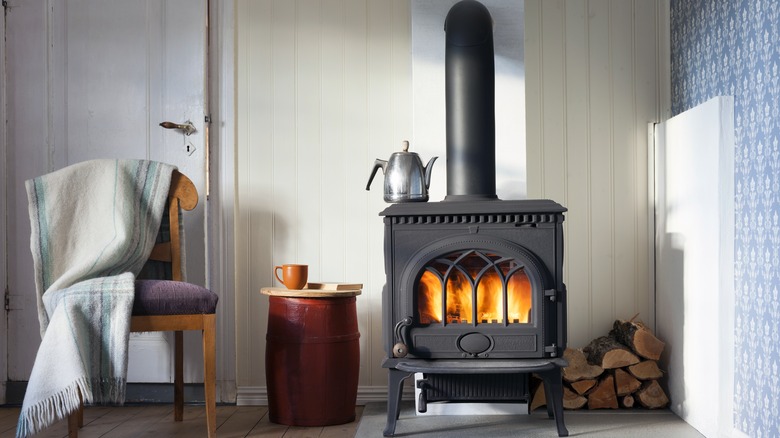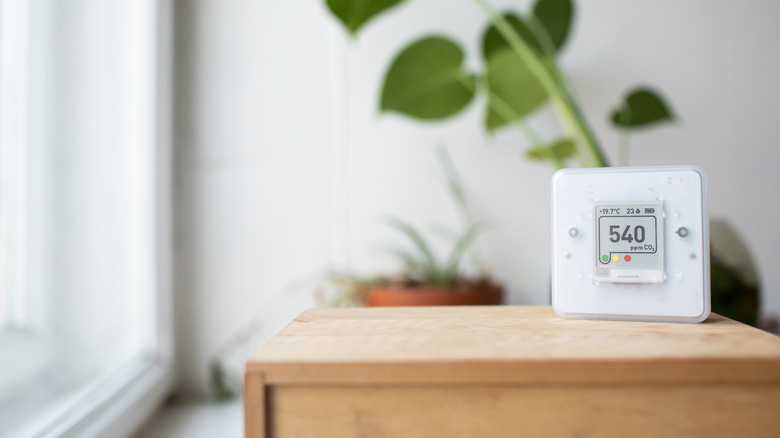Home Mistakes That May Be Diminishing Your Air Quality
Regularly checking your air quality is essential to your health. Modern culture emphasizes eating healthily, using organic products, and living an overall healthy lifestyle, so we mustn't ignore the one thing we put in our bodies every second of every day — the air around us. The Environmental Protection Agency (EPA) reports that Americans are indoors 90% of the time, where pollutant concentrations are two to five times higher than outdoors.
The EPA has also found that in recent years, indoor pollutants have significantly increased due to construction projects that lack proper ventilation and increased use of synthetic materials in furnishings, personal care, and home products. If you notice persistent allergy or cold-like symptoms that do not seem to be caused by regular seasonal changes, it may be your indoor air quality. Even if these symptoms seem small to you, poor air quality in your home could eventually lead to chronic illnesses such as respiratory or heart disease. Here are five things you may be doing that are diminishing your air quality and how you can improve them.
Infrequent HVAC filter changes
One thing often overlooked by homeowners, and renters, is changing our HVAC filters. We are so caught up in organizing our furniture and which tile to remodel the bathroom with that we need to remember some of the smaller and essential functions. An HVAC filter should be changed every 90 days or so, approximately four to five times a year, to maintain a system that will improve your air rather than harm it. Homes with pets or smokers may need to change their filters more often as the more particles in the air that are filtered, the sooner it will need to be changed.
J&W Heating and Air explain that HVACs trap pollen, dust, dirt, mold spores, animal fur, and other bacteria floating about our air. When we do not clean our HVAC filters frequently, this build-up sits in our homes, and our air isn't filtered properly. Dirty air can lead to asthma, allergies, headaches, and chronic conditions. However, it is not just our health that our HVAC affects. Cleaning your HVAC will positively increase your home's energy efficiency. A clean filter won't require as much energy and will extend the life of your HVAC system, which can cost anywhere between $5,000 and $12,000 to replace.
Harmful cleaning and household products
We are all guilty of lighting candles, incessantly spraying air fresheners, and frantically cleaning around the house right before expecting company. It doesn't typically occur to us that the fragrances we love so much and the cleaning sprays that make our counters so sparkly could be harming our air quality, but they are. Cleaning products such as spray cleaners, soaps, and disinfectant wipes can cause the onset of asthma. The Environmental Working Group (EWG) tested 21 everyday cleaning products and found more than 450 chemical emissions in the air.
EWG advises avoiding cleaners with ammonia or chlorine bleach, as these substances can create a toxic chloramine gas when combined. It is also wise to stay away from products that use hydrochloric acid, phosphoric acid, sodium or potassium hydroxide, triclosan, and ethanolamines. Instead, search for products certified by Greenseal or Ecologo for cleaner products, or consider DIYing your own.
Continuously checking the label for ingredients is something that will be beneficial no matter what it is you are purchasing. If an item does not disclose ingredients on the label, move on and find a product that does. No current regulations require manufacturers to completely list their ingredients on the packaging. EWG found that only one in seven cleaning products they reviewed in 2016 fully documented their ingredients on the label or website. Always be careful about what you bring into your home and filter through your body.
Unbalanced humidity levels
Too much or too little humidity indoors will significantly affect your air quality. Typically, most households struggle with overexposure to humidity, which creates excess moisture and becomes a breeding ground for mildew and mold. The presence of mold and mildew is not only bad for your health, but it also can damage and deteriorate your property. Air Things suggests that humidity levels indoors should not reach over 70% or go below 30%, and recommend staying in the healthy range of 30% to 60%.
Too little humidity will dry out the air and increase the chances of catching and spreading viruses. Finding the right balance of humidity in the home is important and can be kept in check in a variety of ways. If the air is too dry, add plants to your shelves, buy a humidifier, or even boil a big pot of water on the stove to get some moisture circulating through the room. If there is too much humidity, which is a common issue with kitchens and bathrooms, make use of fans, windows, and dehumidifiers to fend off the possibility of rot occurring.
Improper ventilation of combustion products
Combustion products are gases and particles from burning fuel such as wood, natural gas, kerosene, charcoal, or tobacco. These impurities are common in households, and the issue lies in improper ventilation. Furnaces, space heaters, water heaters, and fireplaces are all recurring features in many homes, and knowing how to ventilate your air correctly is crucial to your health. Without good air circulation, combustion products can create carbon monoxide (CO). Symptoms of a possible CO leak indoors include headaches, nausea, chest pain, and vomiting. The CDC reports that 430 people die yearly from accidental CO poisoning, and more than 50,000 need emergency services.
It sounds scary, but there are many ways to prevent appliances from harming your air quality. Keep a balance of indoor air with your outdoor air by ensuring space heaters and gas stoves are vented outside. Regularly inspect that your furnaces, water heaters, and chimneys are all operating as they should be. And, to give yourself some peace of mind, buy a CO detector and easily stay on top of a potential issue.
Irregular testing of indoor air quality
As noted by now, so many things could be harming your indoor air quality. A mistake many people make is simply never testing their air quality and assuming that their symptoms come from allergies and viruses. Reed Service recommends testing your indoor air at least once a year, and after any big move, remodel, or renovation you perform. You should also test anytime you get new systems, such as AC and heating units.
An initial test will check for dust mites, pollen, volatile organic compounds (VOC), lead, radon, mold, and carbon monoxide. VOCs are suggested to be tested more frequently as they are found in daily tasks like cooking, cleaning, on our furniture, and more. Testing your indoor air quality may seem complicated, but it can be made very simple by purchasing indoor testing kits, air monitors, or hiring an air quality professional to do the testing for you.

